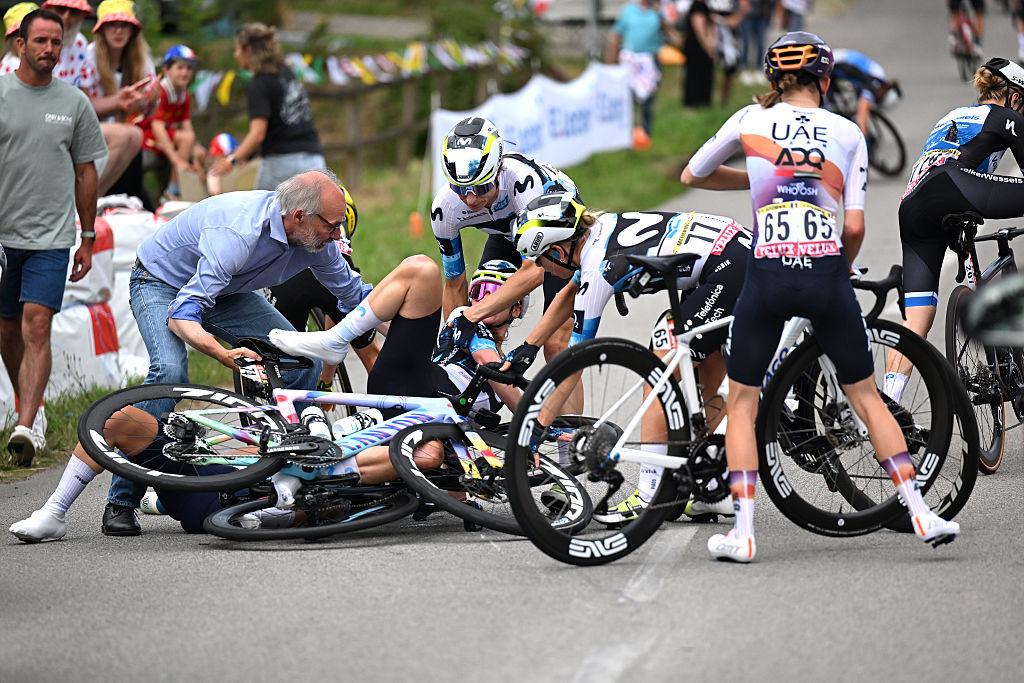In a surprising turn of events at the Tour de France Femmes, Italian cyclist Elisa Longo Borghini has withdrawn from the prestigious race due to a gastrointestinal infection. Longo Borghini, a seasoned competitor and former world champion, made the decision to head home after struggling with her health during the opening stages of the event. Her departure marks a significant blow to her team and highlights the physical toll that such an intense competition can take on athletes. As the race progresses, her absence will undoubtedly be felt not just among her teammates, but across the professional cycling community. This unfortunate incident sheds light on the often-overlooked challenges that cyclists face on the road to glory.
Elisa Longo Borghini Withdraws from Tour de France Femmes Due to Gastrointestinal Infection
In a surprising turn of events, renowned cyclist Elisa Longo Borghini has withdrawn from the prestigious Tour de France Femmes following a diagnosis of a gastrointestinal infection. The Italian rider, who has been a formidable competitor in the peloton, had hoped to make a significant impact this year, but her health ultimately took precedence. Team officials reported that Longo Borghini experienced severe discomfort, prompting medical evaluation that confirmed the necessity of her departure from the race.
This withdrawal marks a poignant moment for the race, as Longo Borghini’s presence added depth and intensity to the competition. Her achievements in recent years have earned her a devoted fan base and respect among peers. Several racers and teams expressed their support for her speedy recovery through social media posts, conveying messages of encouragement. The cycling community watches intently as the race continues, now with one less contender in the battle for the coveted yellow jersey.
Impact of Health on Performance: Analyzing Common Risks in Competitive Cycling
The recent withdrawal of Elisa Longo Borghini from the Tour de France Femmes highlights a pressing issue faced by competitive cyclists: health-related challenges that can severely impact performance. Gastrointestinal infections, like the one Longo Borghini suffered from, are surprisingly common in the sport, often resulting from the combination of intense physical exertion, changes in diet, and exposure to various environmental factors during races. This condition not only affects hydration levels and energy availability but can also lead to significant time off from training, derailing carefully structured performance plans. While athletes are trained to overcome various physical challenges, health issues can emerge unexpectedly, thrusting riders into the precarious situation of choosing between passion and well-being.
Analyzing the prevalent risks in competitive cycling reveals a broader picture of health management that teams must address proactively. Some common risks include:
- Infections: Bacterial and viral infections can arise from unsanitary conditions or exposure during travel.
- Nutritional Deficiencies: The demanding training regimens often lead to insufficient nutrient intake, making cyclists vulnerable.
- Overtraining Syndrome: Intense and prolonged training can lead to burnout and decreased immunity.
This incident underscores the importance of integrated support systems that encompass not just physical training but also nutrition and health monitoring tailored to individual athletes. A thorough understanding of these risks can lead to enhanced performance longevity for cyclists, allowing them to navigate the intense demands of high-stakes competitions without compromising health.
Preventing Health Issues in Endurance Sports: Best Practices for Athletes and Teams
As the Tour de France Femmes unfolds, the health risks that endurance athletes face become ever more apparent. Elisa Longo Borghini’s withdrawal due to a gastrointestinal infection highlights a critical issue in professional cycling and endurance sports. To mitigate such health concerns, athletes and teams must adopt preventive measures that prioritize nutrition, hydration, and recovery. Implementing a well-structured dietary plan is essential, as it ensures that athletes receive adequate nutrients while minimizing the risk of infections and gastrointestinal distress. The importance of hydration cannot be understated, particularly in endurance events that push the body to its limits.
Moreover, effective recovery protocols play a pivotal role in maintaining athletes’ health throughout demanding competitions. Regular health check-ups, including monitoring for early signs of illness or dehydration, can significantly decrease the chances of athletes facing severe health issues. Below are key best practices to consider:
- Consistent hydration monitoring
- Balanced meals rich in carbohydrates, proteins, and healthy fats
- Rest and active recovery days to prevent burnout
- Routine medical evaluations to catch potential health issues early
The Way Forward
In conclusion, the early departure of Elisa Longo Borghini from the Tour de France Femmes due to a gastrointestinal infection highlights the unpredictable nature of competitive cycling and the challenges athletes face. As the race continues to unfold, the absence of such a prominent contender serves as a reminder of the physical toll these events can take. Fans and fellow competitors alike will certainly feel the impact of her withdrawal, but the drive and determination of the remaining riders remain steadfast as they push onward in pursuit of glory. With several stages still to go, the battle for the yellow jersey continues, promising an exciting and unpredictable finale to this year’s competition.











